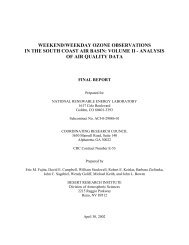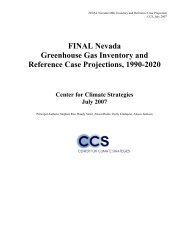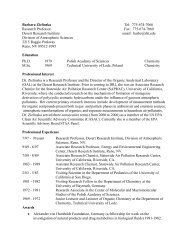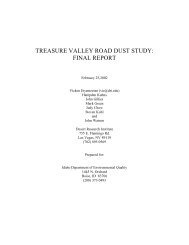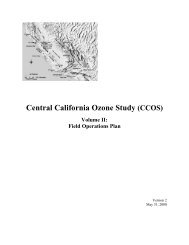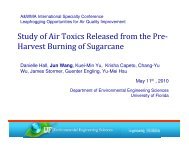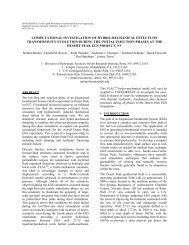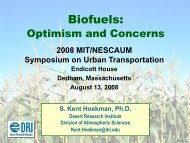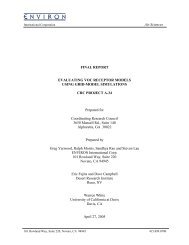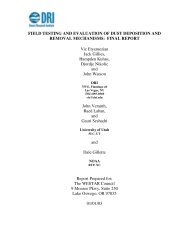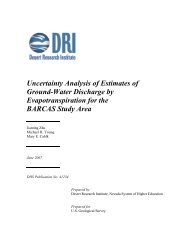Assessment of Conversion Technologies for Bioalcohol Fuel ...
Assessment of Conversion Technologies for Bioalcohol Fuel ...
Assessment of Conversion Technologies for Bioalcohol Fuel ...
You also want an ePaper? Increase the reach of your titles
YUMPU automatically turns print PDFs into web optimized ePapers that Google loves.
have been run <strong>for</strong> a sufficient time period to ensure that mass and energy<br />
conversion efficiencies have not degraded with time.<br />
Demonstration–The objective <strong>of</strong> the demonstration plant is to fully establish<br />
and develop specifications as necessary <strong>for</strong> the construction <strong>of</strong> a commercial<br />
full-scale plant. This demonstration plant should be able to process more than<br />
20-25 tons/day <strong>of</strong> biomass on an annual basis. Its design includes the<br />
incorporation <strong>of</strong> on-line chemical and physical sensors and control systems to<br />
run the plant continuously <strong>for</strong> several days as a totally integrated system. The<br />
hardware <strong>for</strong> recycle loops is included so that recycling process can be fully<br />
evaluated. The demonstration plant is used to help determine the potential<br />
robustness <strong>of</strong> each unit process and component <strong>for</strong> the full-scale production<br />
plant.<br />
Deployment–This final stage includes the engineering and design <strong>of</strong> a<br />
commercial scale plant within the expected capital costs. The operating and<br />
maintenance costs are within due diligence estimates, as determined after the<br />
plant has been running <strong>for</strong> 329 days/year, 24 hrs/day <strong>for</strong> at least 1 calendar<br />
year (preferably two calendar years). The energy and/or fuel production yields<br />
are within anticipated design specifications.<br />
Energy Efficiency (E2)<br />
E2 compares the energy efficiencies <strong>for</strong> the production <strong>of</strong> bioalcohol fuels, and any<br />
merchantable co-products such as electricity. Energy efficiency <strong>of</strong> the fuel production<br />
process is also one <strong>of</strong> the key determinants <strong>of</strong> the relative greenhouse gas<br />
contribution <strong>of</strong> the full fuel cycle. The criteria <strong>for</strong> the production <strong>of</strong> alcohol fuels are as<br />
follows:<br />
Excellent:<br />
Good:<br />
Fair:<br />
Poor:<br />
Not Acceptable:<br />
>45% thermal energy efficiency<br />
40-45% thermal energy efficiency<br />
30-35% thermal energy efficiency<br />
25-30% thermal energy efficiency<br />



